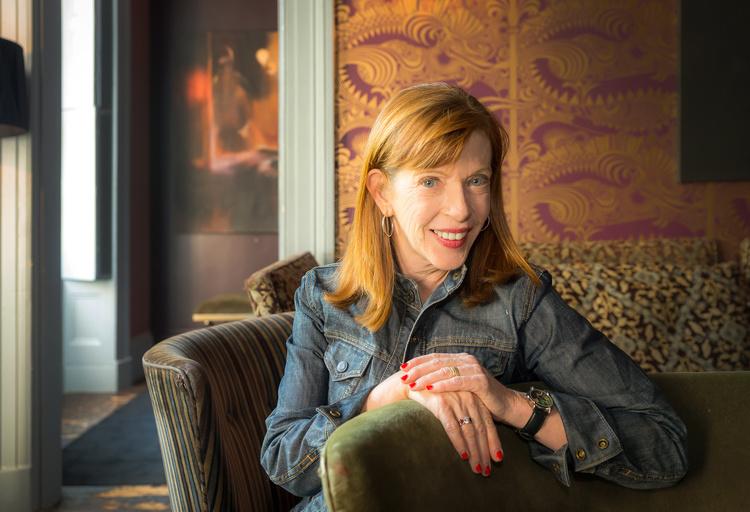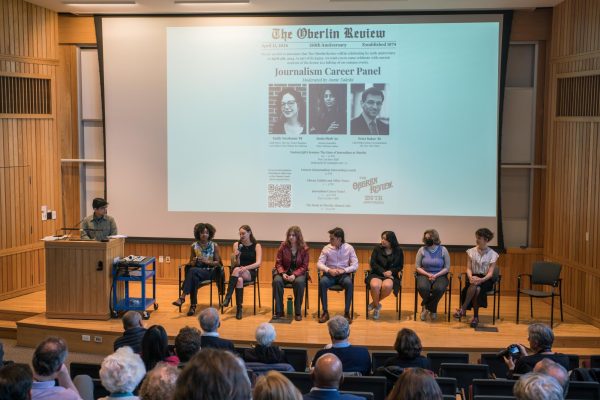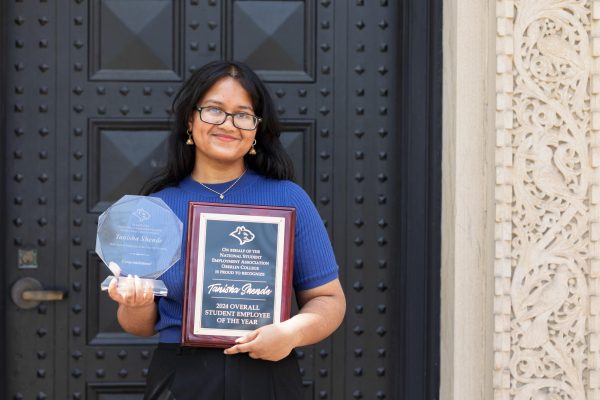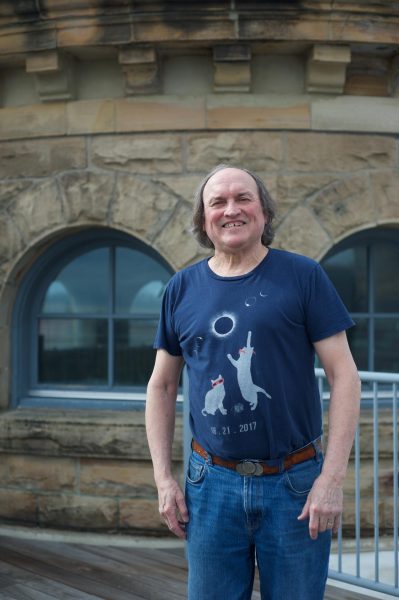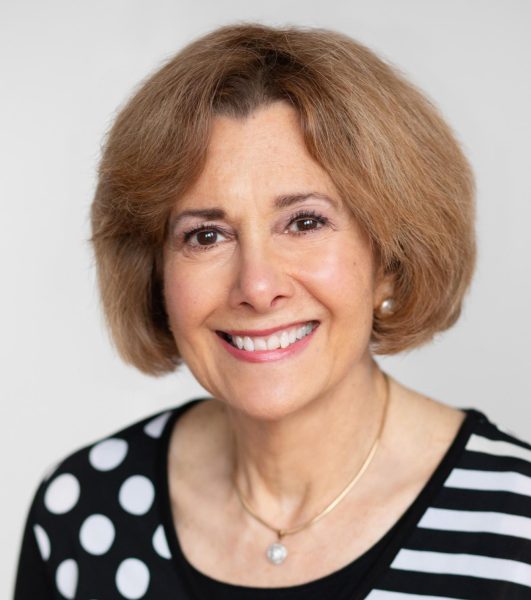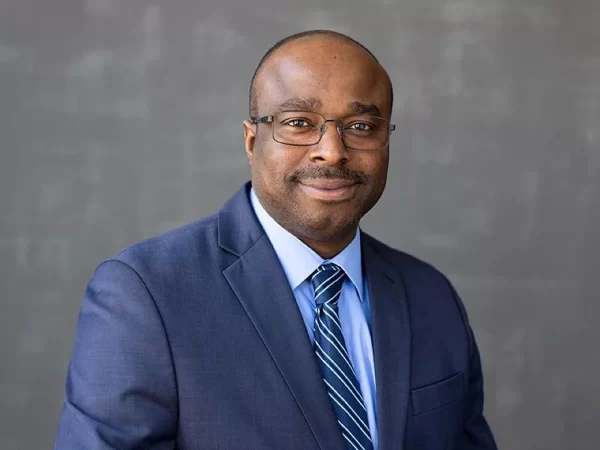OTC: Susan Orlean, Author, Journalist
Photo courtesy of Susan Orlean
Susan Orlean
Susan Orlean is an award-winning, bestselling author and journalist. Orlean has been a staff writer for The New Yorker since 1992 and has contributed to publications including The Boston Globe, Rolling Stone, Vogue, and Esquire, among others. In October 2018, she published The Library Book, which tells the story of the 1986 Los Angeles Public Library Fire that destroyed 400,000 books and damaged 700,000 more. She interweaves this story with the history of the American public library system, as well as the notorious characters and drama of the LA Library itself. Orlean will visit Oberlin on Monday, April 15, to deliver the 2019 Harold Jantz Memorial Lecture, discussing The Library Book, the importance of library systems, and her process as a journalist and author. The lecture will begin at 4:30 p.m. in Dye Lecture Hall and will be followed by a book signing. The event is sponsored by the Jantz Memorial Lecture, the Office of the President, and Friends of the Oberlin College Libraries.
This interview has been edited for length and clarity.
What will you be discussing at the talk you’re going to give Monday?
Well, what I have found most interesting is talking about why I wrote the book. And it’s a matter of several different impulses that came together, which makes it kind of interesting. [The book] really is an effort to illuminate those themes that drew me to this story of the fire — and to writing in general about libraries — and my emotional context of what I was writing about.
What do you think is particularly resonant about libraries, and specifically the LA Library Fire of 1986?
We have a really emotional connection to books and to libraries that is much greater than our feelings about other public institutions. But there’s [also] a deep connection between people and books that is, in part, magical almost. I think that we feel that books have a kind of human vitality that a normal object wouldn’t contain. And, of course, it’s because they convey a story of information, the work of a human mind. They’re really only one step removed from being human.
As a result, places like libraries that preserve all of these human voices become very meaningful to us. The fact that they are public places that invite community, that welcome the entire community. It’s a very special place that’s distinct from, say, a book store — of course, book stores are still wonderful. We go into a library and our feeling is that we own everything in it — it’s all there for us to have, and there is a really extraordinary, almost an enchanted, feeling about libraries because of that sense that they belong to us.
Obviously you spent a lot of time in the Los Angeles Public Library while researching your book. What was your favorite part of that experience?
Well, I absolutely loved the variety of people that I saw passing through. It just interests me to see this incredible array of humanity passing through day in, day out, and the feeling that this was a sort of town square.
How did this book change the way you think about libraries and communities?
I’m not sure that I would say it changed my ideas as much as it reaffirmed to me how important it is to have places that are open and available and welcoming to the public. And that as people trying to create community, you can’t stay at home and be online. I mean, there have to be places where we encounter one another and sort of look each other in the eye, and the library is one of those very few places where that’s the case.
I’m familiar with your work, and you have a way of humanizing these larger-than-life protagonists in your story — Harry Peak, the person accused of setting the LA library fire, for example. How do you encapsulate these big personalities? Is that a challenge for you?
It is a big challenge, particularly with people who are problematic. And obviously Harry was a problematic, simple, straightforward guy. He was somebody who was, in many ways, very maddening. And I don’t think he was somebody who ever intended anyone any wrong, but he was somebody who had trouble telling the truth, who had trouble really finding himself. And who was inordinately dazzled by the idea of celebrity, which is something that many people, including me, find sort of disappointing.
But everybody has a story. His humanity is who he is and what he is. He doesn’t need to match some template of a character to make him worth examining. And, in fact, part of what I found interesting and challenging is how contradictory he was. I’ve often been attracted to writing about people like that, although they’re very difficult to write about because they’re easy to write off. You can look at Harry and say, well, he was a fibber, you know, sort of a screwup. But there was something also very appealing about him. He had a very human quality of wanting to be bigger than he was and to be remembered. And since this book was so much about the phenomenon of being remembered, he’s appealed to me on that level very, very directly. This was a guy who, for better or worse, just wanted to create a persona that would be special. That’s not that hard to understand.
What went through your mind when you met Harry’s family and found out that he had passed away? I know that must’ve been a key part to figuring out the mystery of what happened to the library in ’86.
I was shocked and also — it sounds weird — but I was very concerned because I thought, well, “I’m not sure that I know how to write this book if I can’t talk to him.” I’ve written a lot about people who are not alive, and I’ve sort of learned how to do that. Interestingly, you sometimes learn more about them by talking to the people around them and gaining a sense of who they are through the newspaper and archival material. Would I have preferred that he were available? Of course. For sure. But he remains a mystery, and the fire remains a mystery. There was a point at which it seemed almost appropriate to me that I couldn’t talk to him.
I noticed in your book that you were pretty transparent about your writing process and interviewing process. Was that an intentional choice or do you think that’s just something that naturally comes out in your writing?
Well, both. I feel like it was very much an intentional choice, but it also feels very natural to show the machinery in the vehicle. Of course, you know that there’s an engine driving this. I might as well acknowledge that and tell you a little bit about how the engine works.
Why do you think more non-fiction authors don’t share that information-gathering process and the struggles of actually getting material to write about?
I think it’s a writer’s choice and a stylistic choice and a tone that some people might not be comfortable with. I don’t see it as a right or a wrong. I just feel like for me it comes very naturally, so I do it. Other people have a more formal style and that’s just not going to be comfortable for them.
Do you have a strategy that you use when you prepare for interviews?
My strategy, honestly, is to prepare very little — and I know that this will be the kind of thing that would give a journalism professor a heart attack — but I believe in going in with a really open mind. I want to learn from them. And so I feel like the best way for me to be in that state of mind is to not over-prepare and not go into it feeling like they’re simply confirming what I already know.
Are you often surprised by what you get out of interviews with that strategy?
Oh, yeah, always — which is why it’s good. I mean, that’s why it works for me. I think everybody has to find the way that they work best. But for me it’s important to be surprised, and that’s why I like to allow myself to be unprepared. I don’t want to go into an interview with someone feeling that I already know what they’re going to say, because I think it’s so important for me to be surprised.
What was the most surprising thing you learned while researching the library fire or libraries in general?
Well, the most surprising thing I learned is that there are more libraries than McDonald’s restaurants in the U.S. To me, that was a wonderful fact and one that I savor — no pun intended.About the fire, I think it was learning the complexity of investigating arson, how incredibly difficult it is, and how often it goes unsolved. To me, that was really fascinating.
In The Library Book, you mentioned that when you entered this process, you weren’t planning on writing another book. Can you explain why that was? And what about this particular topic changed your mind?
When I finished my last book, I was really exhausted. I felt that the commitment of five or six years was just so overwhelming. It felt so daunting. It’s not that I didn’t want to be a writer, I just didn’t want to take on another book and another commitment that would hang over me for that long because I know that I’m not fast. I know that my books take that kind of time. I was also sure that I would not come across another subject that interested me enough to commit to five or six years of work.
When I heard about this story, I couldn’t resist it. To me it was just instantly fascinating and touched on so many things that appealed to me: This emotional, underlying thought about libraries and my affection for them, my memories of going to the library with my mother and how meaningful that was, coupled with my journalistic curiosity about how the library functions day to day, and then added to that this amazing story about the fire. I just felt like, “I can’t resist this, it’s too interesting.” And in spite of myself, I plunged in — and of course, I’m glad I did.
You mentioned that you didn’t think you would find another topic that really held your interest. Do you think there’s a specific way you found all of these really unique topics that you’ve written about, or do you think you’re just lucky in that way?
I think it’s a little bit of both. I feel like I have some lucky knack for coming across interesting stories, but I also feel like I pay attention. So it’s not that these things fall into my lap, but that I’m always attuned to the little details that could turn into a great story. It’s almost the way certain people are really good at finding parking spaces. And, you know, partly you feel like it’s just some kind of crazy karma that they get these good spaces. Partly they know the streets to go down that might yield a good parking space. So, as E.B. White once said, “You have to be prepared to be lucky,” and that’s how I feel.
I know you mentioned in your book that more young people are using the library than ever before. Why do you think that is?
I think young people, first of all, are really interested in shared space. There is a real value placed on being among people that we’re seeing really return in a very powerful way, which is fantastic. Many young people are now working independently and don’t have offices. So you’ve got a whole generation that is either working at home or in coffee shops or, you know, finding a co-working space. And they’re discovering that libraries are ideal for that.
In addition, I think there’s the attitude among people of a certain age that you don’t have to own everything you’re interested in; you can share it. That is a really significant change. And it’s not only true with libraries — it is the case that people under a certain age feel they don’t need to own their own car. They’re happy to share a zipcar. They don’t need to own a house. They’re happy to rent. There’s a really notable generational change around ownership versus sharing. And I think it’s actually a wonderful thing.
Do you have any advice for aspiring writers and journalists?
The two most important things for aspiring writers is to read and read and read. Read the work that you admire. Imitate the work you admire and get practice. See how the work that means something to you is made. The second thing is just to write as much as you possibly can. And every opportunity you’ve got, use it. Whatever it is, the more you write, the better you get. There’s no shortcut to that. It’s a really essential thing. So just practice, practice, practice. There’s no magic — the magic comes when you fall in love with being a writer and it begins to feel natural to you.


